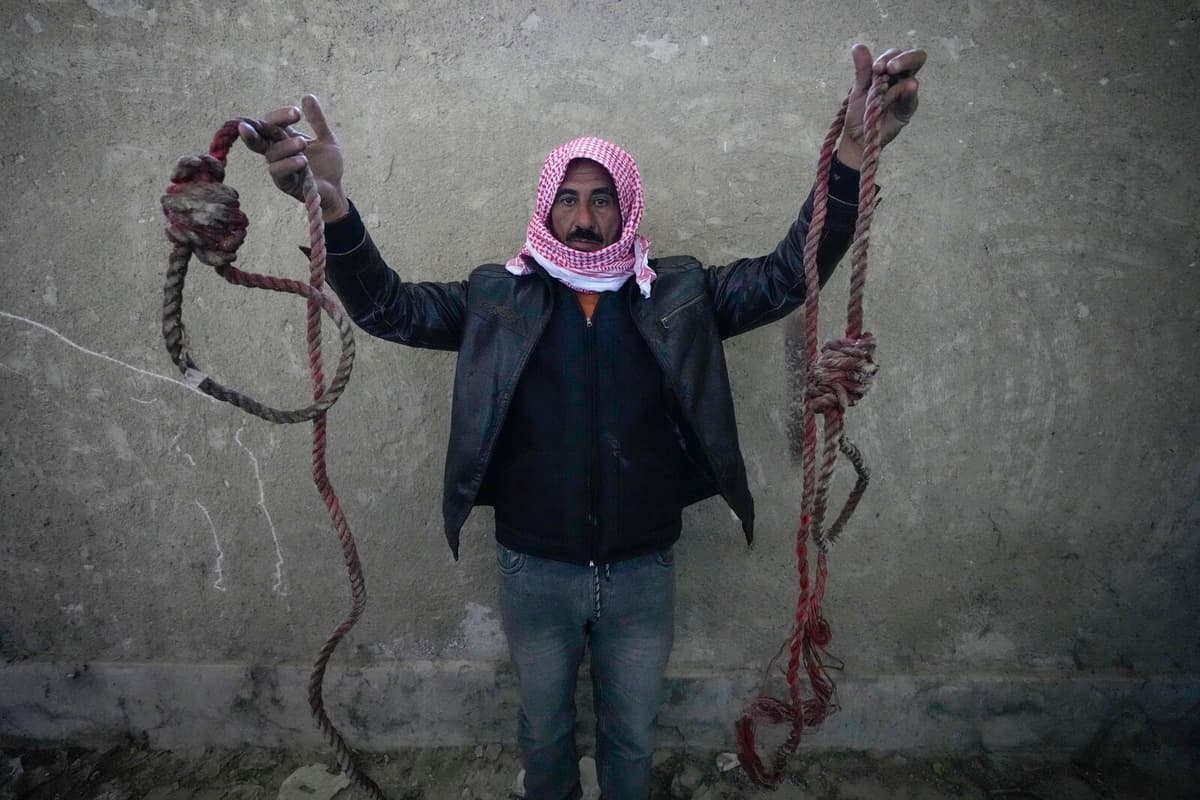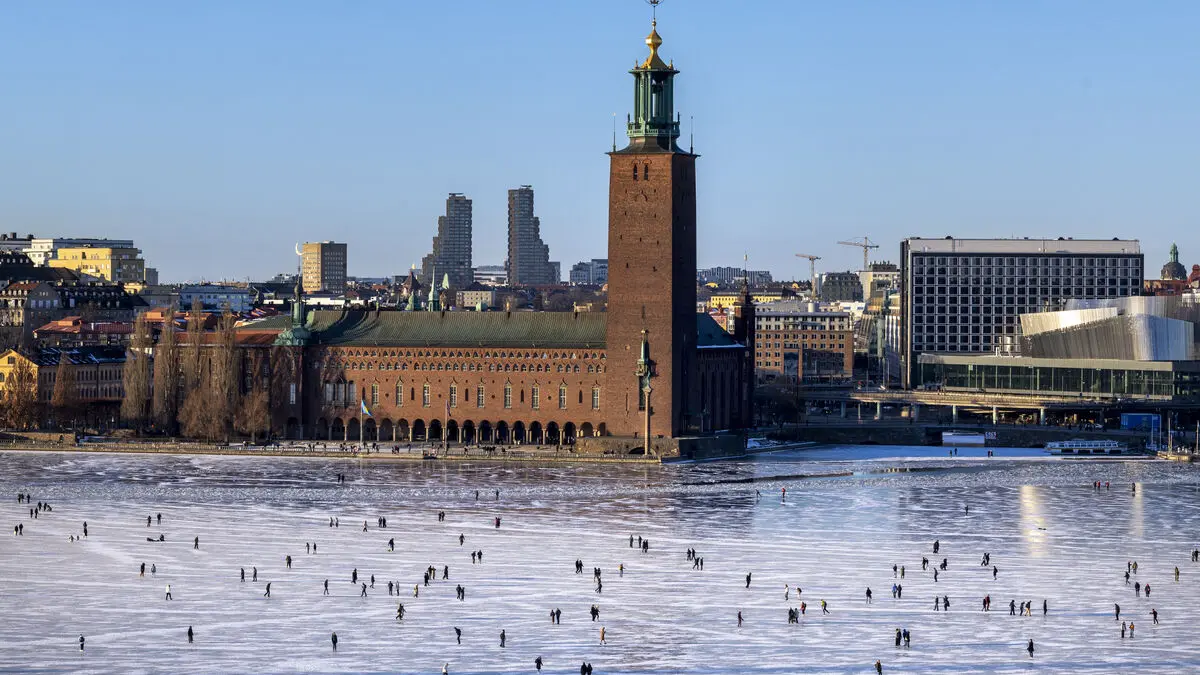Don't come here, warns perpetrators from the former Assad regime, says Patricia Rakic Arle, head of the police war crimes unit in Stockholm.
Her team, consisting of around fourteen investigators, already has a full workload with ongoing investigations. Every time a report is filed against an individual, regardless of where in the world the crimes were committed, the war crimes unit is obligated to investigate the allegations.
And since Syria's dictator Bashar al-Assad fell in December, after he and his father had ruled the country with an iron fist for over 50 years, a flood of previously silenced victims and relatives is expected to come forward.
Unique working method
The Syrian state's abuses are often linked to the horror prisons where political dissidents were taken, the horrors of which the world has learned about since the regime's fall. There, prisoners lived with constant torture.
Many of the Syrians now living in Sweden have either been imprisoned under such conditions or have a relative who was subjected to it, says Rakic Arle.
I almost don't believe that there are many Syrians who came in 2015 who don't have a connection to these prisons. It was so incredibly many. They live with the trauma here.
Sweden has a good international reputation when it comes to investigating war crimes. On several occasions, perpetrators of crimes committed far away, many years ago, have been brought to justice in Swedish courts.
For the police officers who initiate the often lengthy processes, the working method is different from other crime investigations. Usually, investigations begin with a crime being committed and the police searching for a perpetrator. When it comes to war crimes, the order is often reversed: investigators receive a tip about a suspected perpetrator and then have to determine whether the actions of the person accused constitute a crime according to Swedish law.
But an investigation can also be initiated without a name on a suspect.
We work with something called structural investigation. It's unique to us, no one else works that way, says Rakic Arle.
Three arrested
Structural investigation means that an investigation is set up for large, international events that can lead to prosecution in Sweden.
It's basically more of an information gathering, a type of intelligence base. But for us to be able to hold interrogations and seize evidence, there must be an investigation, and then we have to work according to the Code of Judicial Procedure.
The terrorist organization IS's crimes in its former caliphate, perpetrators in Russia's war against Ukraine, and crimes committed by Syria's regime all have ongoing investigations in Stockholm. A structural investigation has not yet been initiated regarding the war in Gaza, but it also takes up a lot of the war crimes unit's time and resources.
Structural investigation allows us to hold interrogations with people who have general key information: journalists, doctors. In many cases, people who have been imprisoned. We take down the testimonies and secure the evidence for the future.
Many interrogations have already been held with Syrians who were imprisoned under the regime. To get victims to dare to talk, war crimes investigators need to have good social skills and knowledge of cultures that differ from their own.
When it comes to Syrians, there is one factor that stands out for the police: the fear of reprisals has been massive.
The Assad regime's notorious intelligence apparatus created the expression that "the walls have ears" – an impression that the police could feel even in the interrogation rooms in Stockholm.
"They will be smoked out"
If it emerges that a person pointed out in an interrogation in Sweden is in another country, the countries often collaborate and exchange information.
Right now, three people are detained in Sweden, suspected of having participated in violently suppressing peaceful government demonstrations on the outskirts of Damascus in 2012, in alliance with the Assad regime. They were arrested in collaboration with German police, who have detained five more people for the same suspicions.
However, the fall of the Assad regime is also feared to lead to more suspected perpetrators, who risk being punished by the new government, leaving Syria for Europe and Sweden.
Some who may have been regime loyalists, but who have been granted asylum in Sweden and traveled back and forth to their home country. They are probably afraid of what will happen there.
It concerns, for example, people who worked at the horror prisons and committed crimes such as torture or arbitrary executions.
Such people are likely already in Sweden, according to Rakic Arle, although identification may be complicated by the fact that some perpetrators are believed to have sought asylum in Sweden under false identities.
They will likely be smoked out. In countries with large Syrian diaspora, it's hard to stay hidden.
Until December, the Syrian state had been ruled with an iron fist by the al-Assad family since the 1970s.
Syria's political system was formed by Hafiz al-Assad, president from 1970 to 2000. Son Bashar al-Assad inherited power after his father's death in 2000 and implemented some changes. But the basic system remained the same: with the president as both head of state, supreme commander, and holding the highest executive power.
The uprising against Bashar al-Assad's regime that started in connection with the Arab Spring in 2011 soon took the form of a civil war with significant involvement of foreign powers, resulting in many deaths and a massive refugee wave.
Independent organizations such as Human Rights Watch and Amnesty International have repeatedly reported on al-Assad's brutal rule and the state-controlled secret police that systematically tortured, imprisoned, and killed opponents of the regime.
In December 2024, the regime was overthrown by a coalition of rebel forces led by the Islamist Hayat Tahrir al-Sham (HTS).
Source: Landguiden/UI






